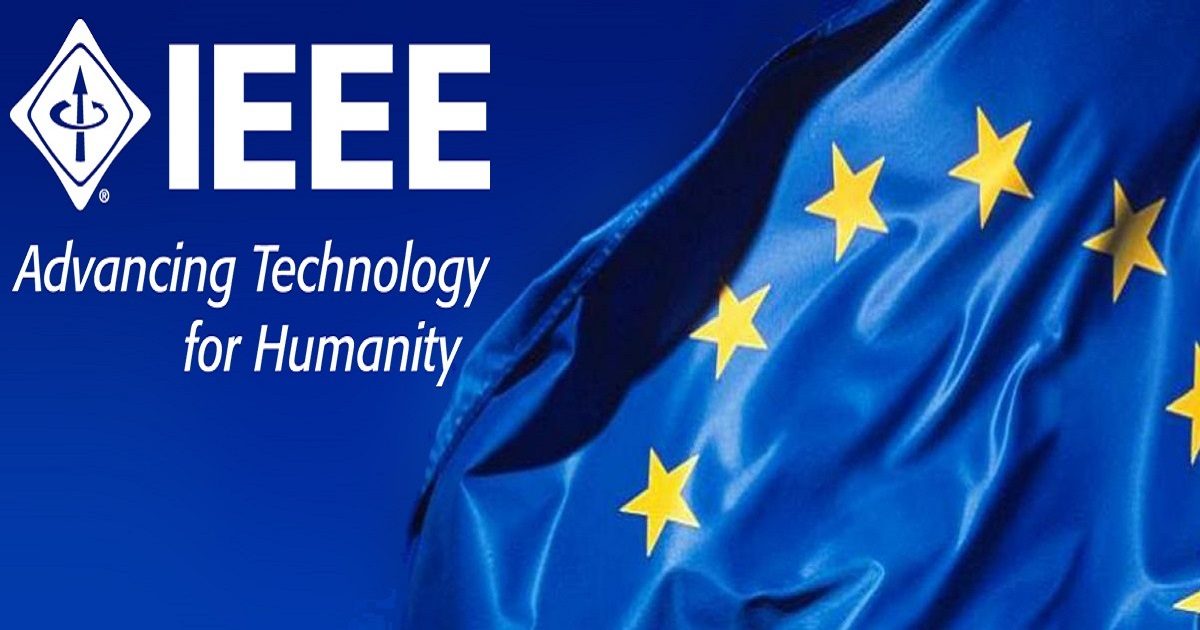By Massimo Pellegrino: IEEE European Public Policy Program Manager. He’s based in the IEEE’s Global Office in Vienna, Austria.
A new quarterly e-newsletter will engage and inform IEEE members on technology-related aspects of public policy issues
IEEE’s public policy activities around the world have increased and risen in importance, especially in Europe. The IEEE European Public Policy Program (EPPP) gives IEEE members a voice in policy discussions on the continent. By pooling and leveraging the knowledge and expertise of our community, the EPPP seeks to provide European public authorities with independent, unbiased, and innovative advice on policy matters related to technology.
That involves a combination of activities including the production of position statements and white papers, the organization of events in cooperation with policymakers, and participation in European Union expert and stakeholder groups.
To keep members informed of IEEE’s public policy efforts in Europe, the IEEE European Public Policy Committee (EPPC) is launching a quarterly e-newsletter next month. The goal is to increase the nearly 60,000 European IEEE members’ knowledge of, and involvement in, public policy activities that might impact the engineering profession.
The e-newsletter will cover EU policy news and discussions, updates on the work being conducted by the EPPC and its two working groups in the areas of energy and information and communication technologies (ICT), as well as upcoming EU and IEEE events.
Scheduled to be published in March, June, September, and December, the publication will inform subscribers about ways they might participate, such as organizing, attending, and speaking at IEEE and EU events; joining EPPC working groups and EU expert groups; and contributing information for both IEEE and EU policy documents.
You can subscribe to the quarterly e-newsletter.
ACTIVITIES ON MANY FRONTS
The EPPC energy and ICT working groups meet virtually every month, and in person twice a year. Their primary goal is to provide a technologist’s perspective on EU policy agenda topics through documents, meetings, and other channels. The EPPC working groups’ public policy position statements and technology whitepapers are published and distributed with the aim of informing EU policymakers and the general public of technology’s benefits, risks, and social implications.
Last year the EPPC working groups issued statements on energy-storage technology, using ICT to help prevent noncommunicable diseases and promote health, and sustainable heating and cooling strategies.
The EPPC issues monthly news bulletins, also in the areas of energy and ICT. They contain information on policy- and industry-related activities that are of relevance to IEEE in Europe, in fields including climate, artificial intelligence, blockchain, clean transportation, cybersecurity, energy efficiency, and sustainability.
Since last year, the EPPC has organized webinars to assist European IEEE members in understanding how the EU functions and what EU policies impacting technology domains are being prioritized.
IEEE members have benefited from participating in EU events and expert groups. Recent examples include IEEE involvement in the High-Level Expert Group on Artificial Intelligence and in the EU’s Digital Assembly. In July 2019, a delegation of European IEEE members participated in a high-level meeting with the European Commission’s Directorate-General for Communications Networks, Content and Technology (DG CONNECT). They discussed opportunities to collaborate on artificial intelligence, blockchain, cybersecurity, sustainability, and decarbonization.
A webinar focusing on the EU’s approach to artificial intelligence is scheduled for 23 September. You can register here.


Social Media